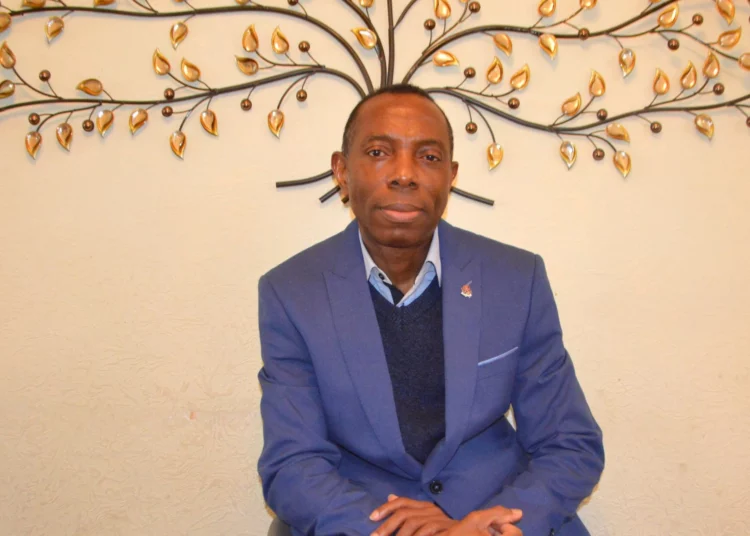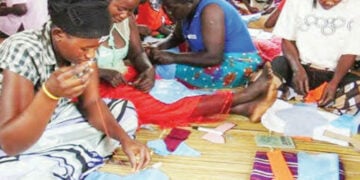The World Health Organisation (WHO) ranks Nigeria as the country with the second highest number of maternal, neonatal and child deaths worldwide.
To change the narrative, however, professor of medical engineering and technology at Imperial College, London, Prof. Amadi Hippolite, has developed the non-invasive Neonatal Ventilator, a key invention (The bubble PoliteCPAP) for continuous positive airway pressure (CPAP) ventilation of very low-birth-weight neonates; the Oxygen Delivery Blender System, which allows for the safe delivery of oxygen without the danger of toxicity and the Oxygen Splitter System, which allows for the use of a shared source of oxygen to many neonates at a time, in situations where piped oxygen is not available.
These innovations have been tested and validated by multiple hospitals in Nigeria. The results indicate that they are more affordable than the alternatives.
Hippolite, who won the 2023 NLNG Prize for Science–Innovations with these innovations, affirmed that, his technologies are the right sustainable frugal technology and procedure for saving newborns’ lives.
“It is built in a way that even a trained nurse in a rural health centre can operate it without the presence of a consultant or specialist. The best way to solve the problem of neonatology in Nigeria – knowing that over 66 per cent of the needy babies seeking intervention are located around primary and secondary centres was to create what I call a ‘newsroom’.
“I created it in a local centre, which doesn’t require a professor or a big consultant. It just requires a basic knowledgeable nurse, medical officer and assistant, to operate. So, the devices I create would be devices that could be easily used. These devices are like the PoliteheartCPAP machine. Ventilating a baby or doing proper scientific-grade respiratory support is a high-class medicine. But I have brought it to the lowest state, where a basic nurse would be able to treat a baby with such a machine and deliver life to that baby. Therefore, it is necessary to create devices that would enable them to manage neonates in faraway hinterlands.
“In my practice, I have identified all the contributors to the high neonatal mortality rate in Nigeria, including dysfunctional buildings in the context of neonatal safety. I have published extensively because I have identified and studied all the problems. I have discussed the aetiology of so many of the problems and I have created solutions. So, it is either this generation of Nigerians would look into what I have provided and solve the problem, or the next generation would do it. My happiness is that I have published everything and it is in the public domain,” Hippolite disclosed.
“The groundbreaking innovations of Hippolite, as recognised by The Nigeria Prize for Science, are not merely a step forward for our nation but a beacon of hope for the countless newborn lives that hang in the balance. We cannot afford to let the cries of our newborns fade into the background of our daily lives. The urgency to combat neonatal mortality is a solemn duty to safeguard the future of our nation’s children, and we must answer that call with unwavering determination and immediate, decisive measures.
“NLNG is very proud of Professor Hippolite’s discoveries through The Nigeria Prize for Science. Our vision of helping to build a better Nigeria is the core of the prize, and we believe strongly that the 2023 winning entry speaks in unambiguous terms as one of the ways we can achieve this vision. NLNG remains committed to the prize and will not relent in finding solutions to the nation’s development issues,” the general manager of External Relations and Sustainable Development, Nigeria Liquefied Natural Gas (NLNG), Andy Odeh affirmed.
Education And Career
With a career spanning over three decades since 1987, Hippolite has made significant contributions to the fields of engineering in healthcare, orthopaedics, and neonatology research. His journey began when he graduated as the top student in Mechanical Engineering from Enugu State University of Science and Technology in 1988.
Hippolite’s global expertise in orthopaedic biomechanics and neonatal innovations for low-income settings has been shaped by his exceptional academic achievements. As a former student and now a Professor at Imperial College London, UK, he earned multiple postgraduate medical degrees, including a PhD.
His dedication to medical practice and research has led to the establishment of a dynamic team comprising nurses, doctors, and technicians. His team has covered more than 30 tertiary hospitals across Nigeria over the past two decades, granting Hippolite unparalleled access to a vast repository of evidence-based data on a national scale.
Hippolite’s impact extends beyond Nigeria. He is a recognised figure in global discussions on the African perspective of climate change’s impact on neonatal health, earning a consistent place on the lists of influential thinkers by organizations such as WHO, Wellcome Trust, and the World Bank.
His exceptional accomplishments have also earned him a prestigious spot in the Imperial College London Hall of Fame as part of the alumni story series.





